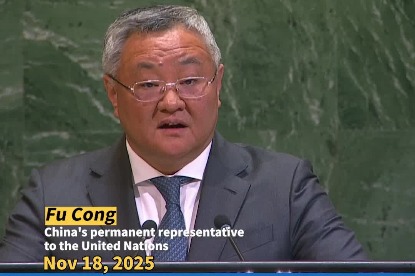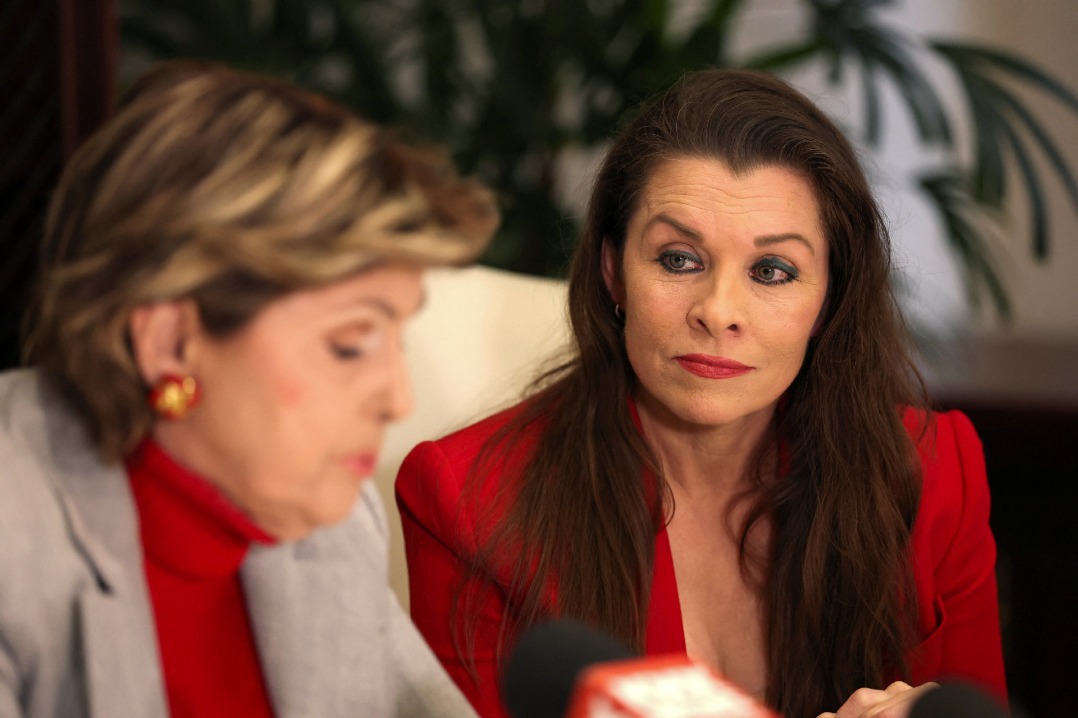Environmentalists condemn US trade group plan to export plastics to Africa

Environmentalists have strongly condemned efforts by the American Chemistry Council, a US-based trade group representing the world's largest chemical makers and fossil fuel companies, to influence the pending US-Kenya trade negotiations with an aim of exporting plastics to Africa.
The group wants the US to force Kenya to relinquish its ban on single-use plastic in the trade deal and use the east African country as a hub for supplying chemicals and plastics to other markets in the continent through the trade agreement.
This is despite the fact that Africa is leading the world in the fight against single-use plastics, with 34 of the continent's 54 countries having either passed a law banning plastics and implementing it or having passed a law with implementation intentions.
Kenya and the US are currently in a trade agreement launched in early July. The agreement is aimed at serving as a model for additional agreements across Africa, including with other East African Community partner states.
Tom Ooko, programs officer at the Center for Justice Governance and Environmental Action, said the "ban plastic movement in Kenya" initiated by environmental activist James Wakibia should not be thrown to the dogs in the foreseen trade deal.
"The Basel Convention provides African nations with a chance to reject such trade deals as it regulates the export of such hazardous products to developing nations," Ooko said. "Kenya therefore wields the power to turn down this trade deal and instead choose to protect and conserve her environment."
Ooko said every Kenyan has the right to a clean and healthy environment and to protect that right, the ban on plastics must remain in force to ensure environmental prosperity and sustainability moving forward.
"We have spent decades advocating for the ban on plastics in Kenya and we feel duty-bound to set the record straight on the trade deal that Kenya intends to enter into with the American oil companies," he said.
Ooko said plastics are among the top environmental polluters and the method of their disposal wreaks havoc on the entire ecosystem, because it affects different species of living organisms ranging from plants, marine life, animals and humans.
Douglas Kithyaka, the operations manager of Meforest Initiative, a Kenya-based youth initiative group focused on the environment, said prior to Kenya imposing the ban, plastics were choking marine life and threatening the country's tourist sector, and that lifting or compromising the ban would be reversing tourism gains even as the sector continues to suffer greatly due to the impacts of the coronavirus pandemic.
"Africa needs to breathe; this is not a dumping ground. We are on our way to liberation, our marine life has improved. People have already embraced plastic alternatives that are friendly to the environment. We can't afford going back to where we were," Kithyaka said.
Michael Olusanya, the director of Greenway International Foundation, a Ghana-based environmental protection organization, said expanding or lobbying for more production of plastics is against humanity and nature.
"It's unacceptable and unlawful to destroy the continent's natural habitat especially during the current unprecedented times that flooding across Africa is a great challenge," Olusanya said.
"The pollution caused by plastic blocking the drainage system, which was ignited by flooding, killed more than 100 people in Ghana in 2015. Phasing out disposable plastic is still a topic of debate among government, manufacturers and the civil society," he said.
Greenpeace International, a non-governmental environmental organization, said efforts by the American Chemistry Council would undo progress that Kenya and other African states have made to address plastic pollution.
"The Kenyan government should not backslide on the progress made in its plastic-free ambitions by folding to pressure from fossil fuel giants, because it stands to derail the progress made across the entire continent," Fredrick Njehu, Greenpeace Africa senior political advisor, said.
"This trade deal could turn Kenya into a dumpsite and diminish what the country has achieved. We are petitioning the Ministry of Trade to say no to this deal."
Kate Melges, senior plastics campaigner of Greenpeace USA, said, "It is shameful but not surprising that struggling fossil fuel giants are lobbying for an expansion of their polluting plastic footprint into the African continent to keep their profits flowing.
"These companies hope to continue dumping single-use plastics on communities around the globe, despite their known impacts to the environment and public health. Making public statements about ending plastic pollution while quietly lobbying to allow Africa to be used as a plastic dumping ground is next level hypocrisy and greenwashing."
Several of the companies in the American Chemistry Council, including Shell, Exxon and Total but not BP – were the founders of a $1billion initiative that pledges to create "a world free of plastic waste".
































